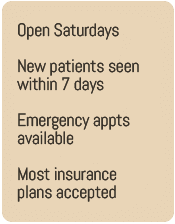Late-Stage Cancer Not a Death Sentence
When a patient receives a diagnosis, it’s vital to understand that cancer is not a death sentence. There is hope, and new advancements in cancer treatment can be customized for each patient for the best chances for survival – even those with late-stage cancer.
Led by oncologist Dr. Francisco Castillos and researcher Dr. Luminita Castillos, Personalized Hematology-Oncology is a haven for cancer patients who don’t respond to the most common therapies. The married duo uses gene expression profiling to analyze pathways in the body and understand each patient’s unique disease.
Previously, many oncologists referred late-stage cancer patients to Hospice when they did not respond to normal treatments, but this discovery enables Personalized Hematology-Oncology to find non-standard therapies that create new options and can often serve as the best-targeted cancer treatment.
Using this methodology, the Wake Forest oncology practice has been able to help many patients with a late-stage cancer diagnosis. Here are a couple of our success stories:
- A 66-year-old female with poorly differentiated hepatocellular carcinoma who entered a clinical trial with Vorinostat and Sorafanib is in remission and remains in the trial.
- A 68-year-old female with recurring stage IV breast cancer and lung and brain metastases who was prescribed Gemcitabine and Avastin combined with radiation now has no sign of disease.
To learn more about late-stage cancer treatments, read the case study “Pioneering Personalized Options for Cancer Patients.”





